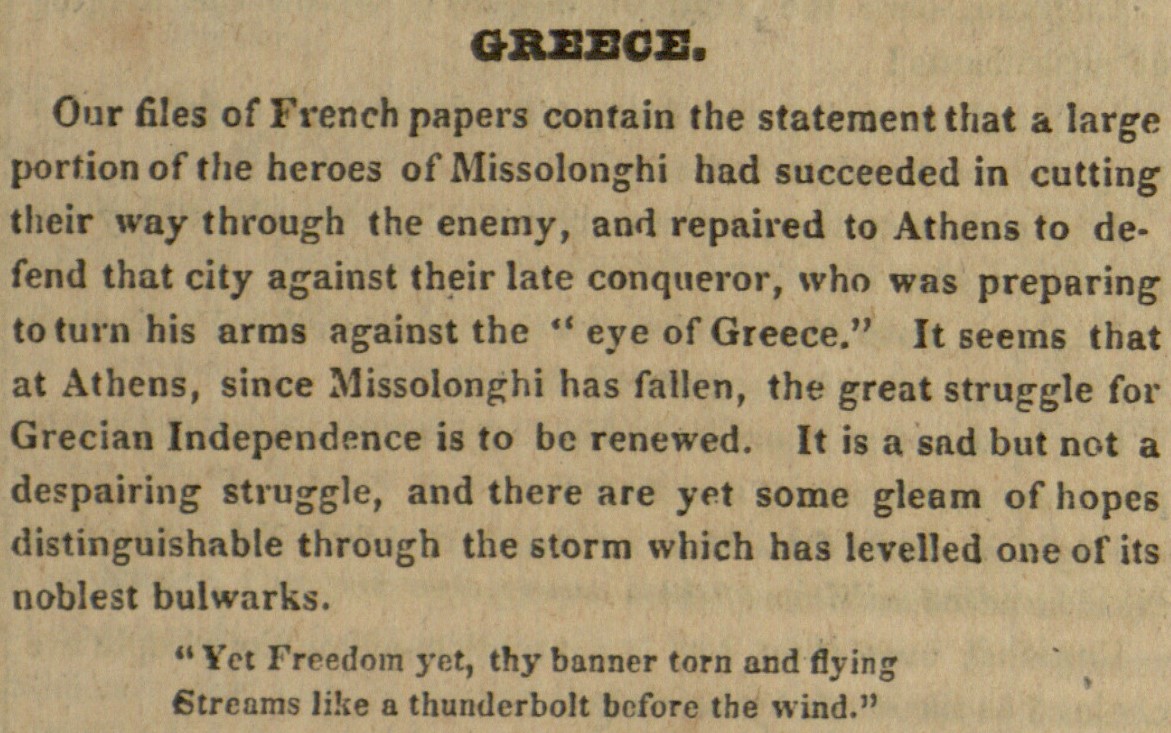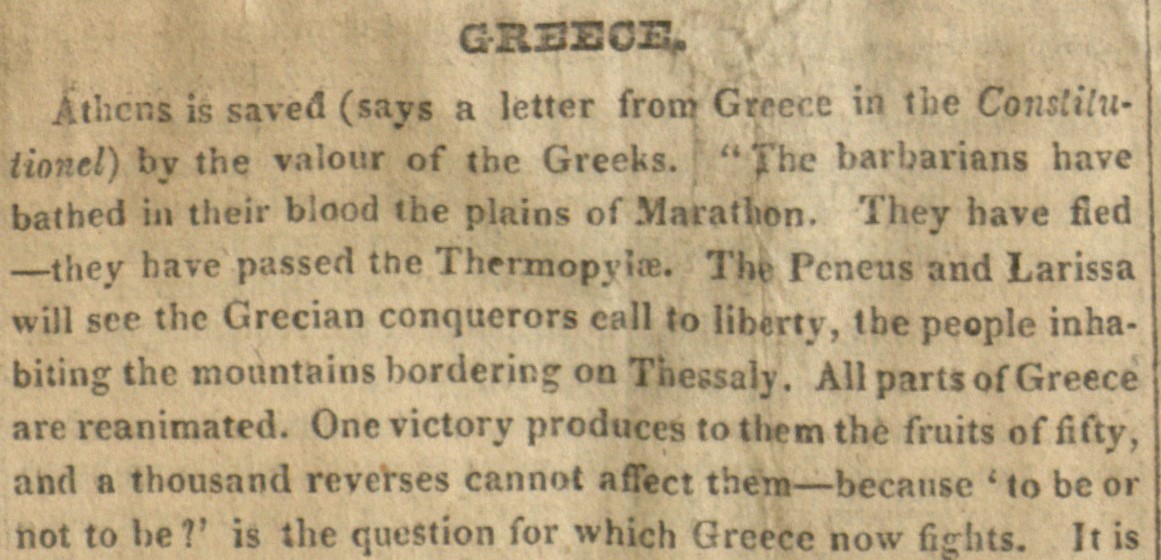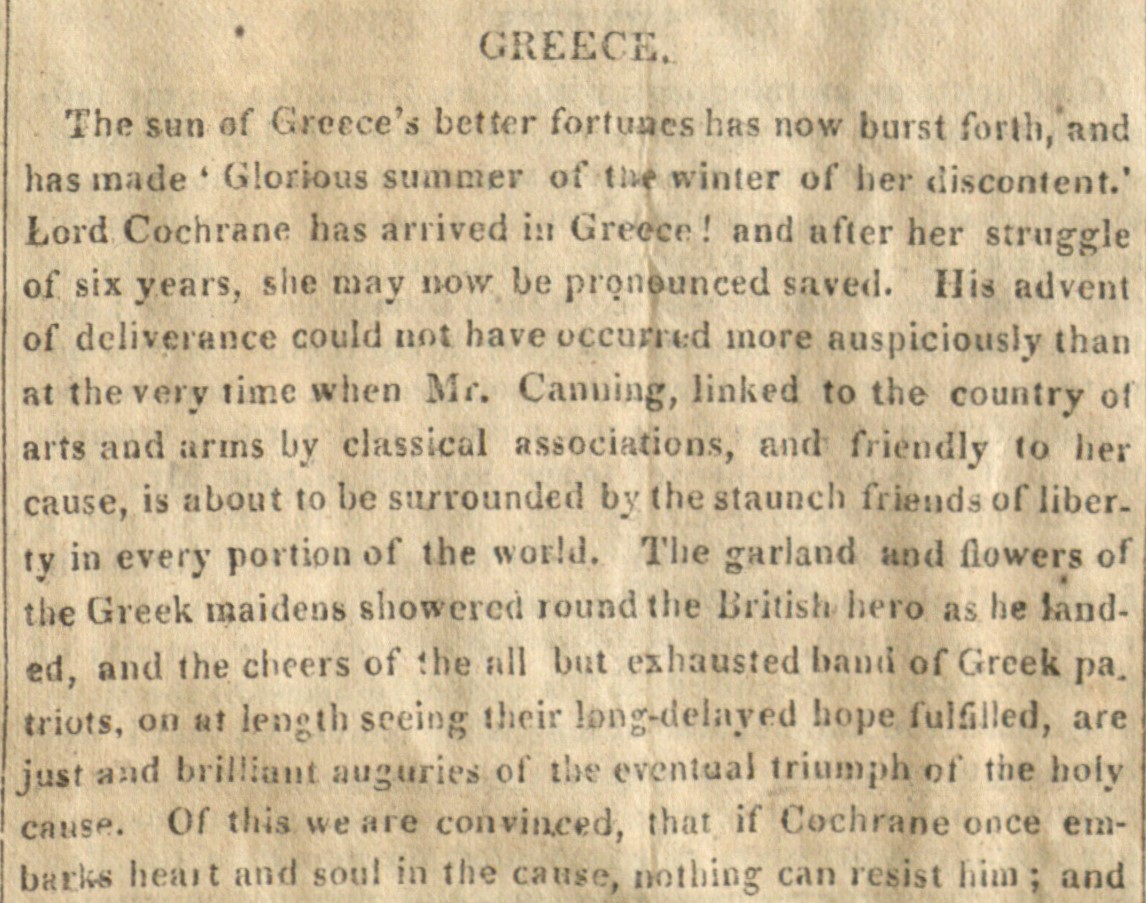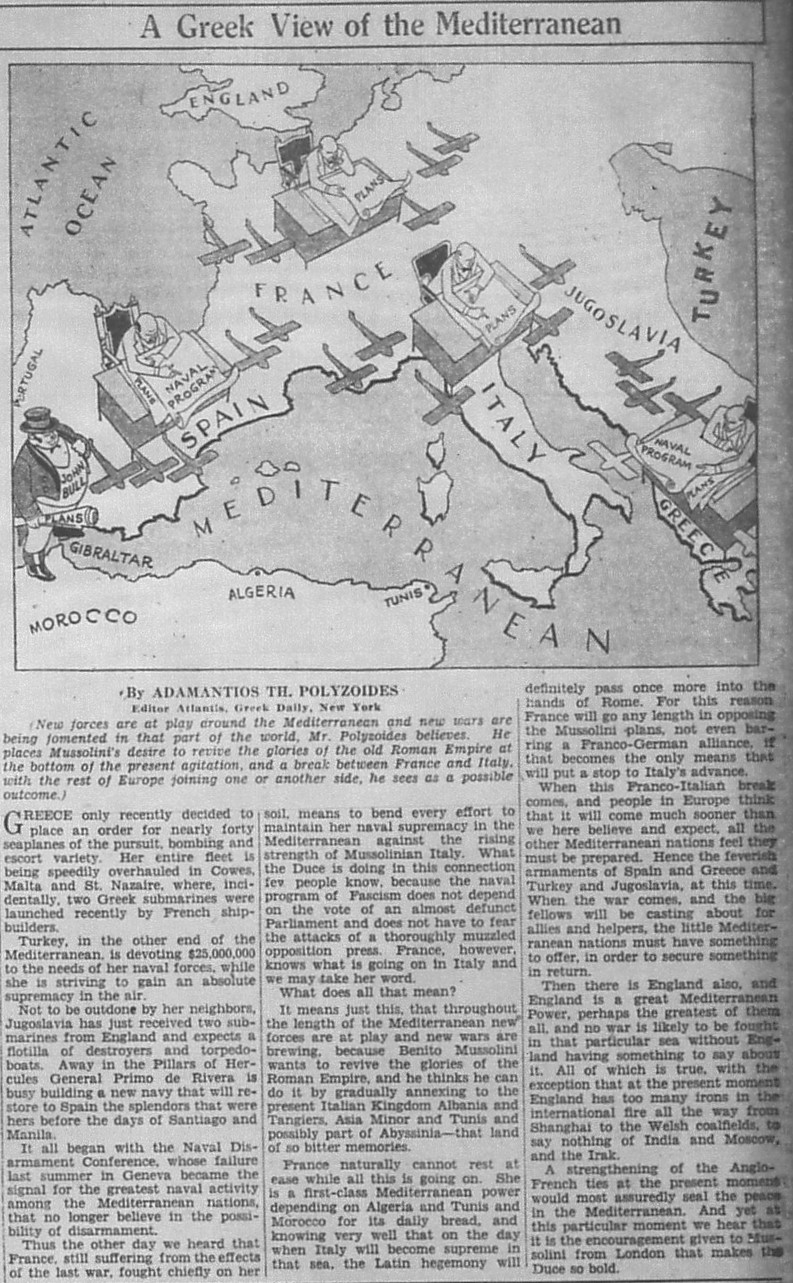Greek Independence Day 2024: Selections from the Villanova Digital Library’s Newspaper Collection

Illustration featuring characters in nineteenth-century Greek outfits. Drawing by Albert Berghaus (active 1869–1880) for chapter IX in Nathan D. Urner’s “Dick and his double; or, Not me, but the other fellow,” published in Frank Leslie’s Boys’ and Girls’ Weekly : An Illustrated Journal of Amusement, Adventure, and Instruction, v. XXII, no. 553, May 26, 1877, p. [225].
The Truth Teller, a Catholic newspaper published in New York, seemed especially interested in covering the War for Independence as it was occurring. The topics covered in this newspaper ranged from updates on decisive battles to reports of foreign involvement. The uncredited writers of these segments seemingly adopted a largely Philhellenic approach to their news coverage.
At the same time, The Truth Teller advertised newly published books covering the Greek Revolution. The following segment promotes A Picture of Greece in 1825 (1826) by James Emerson Tennent (1804-1869), Giuseppe Pecchio (1785-1835), and William Henry Humphreys. The advertisement provides an excerpt focusing on Kostas Botsaris (1792-1853), a Greek general and senator who was active during the revolution. It also makes reference to Kostas’ brother Markos Botsaris (1790-1823), who died during the revolution, as well as to the two brothers’ hometown of Suli, or Souli, in Epirus, Greece.
The following advertisement, published on September 13, 1928, in Philadelphia’s Saturday Evening Post, promotes Samuel Gridley Howe’s (1801-1876) An Historical Sketch of the Greek Revolution (1828). Howe was an American doctor, abolitionist, and education advocate who volunteered as a surgeon and commander during the Greek War for Independence. In this regard, he was similar to many Phihellenes of his time who became deeply invested in the Greek Revolution, such as English poet Lord Byron (1788-1824), who died in Missolonghi, Greece, during the war. (Among other poems by Byron, “The Isles of Greece” celebrates the cause of Greek independence, but remains disillusioned about the assistance offered by Western Europe: “Trust not for freedom to the Franks—/ They have a king who buys and sells; / In native swords and native ranks / The only hope of courage dwells”).
The National Gazette and Library Register was another newspaper that provided updates on the war in Greece. The following segment reprints a letter addressing the political dimension of the Greek uprising. This segment, also from The National Gazette and Library Register, describes the situation at the fortified city of Missolonghi in 1853. Though the article seems hopeful about the city’s ability to defend itself, Missolonghi would fall to Turkish-Egyptian forces in 1826, following a lengthy siege that drove the city’s inhabitants, most of whom were ultimately slain, to exit their defensive position en masse. Missolonghi’s last stand has since held a prominent place in the Hellenic cultural memory and has been memorialized in works such as Theodoros Vryzakis‘ (1814-1878) painting The sortie of Messologhi (1853). Throughout the rest of the nineteenth century, revolutions and political turmoil continued throughout Greece, with various parts of the mainland and islands gradually joining the newfound Hellenic Republic. Newspapers in the Villanova Digital Library report on many of these occurrences, ranging from political troubles surrounding King Otto of Greece (1832-1862) to an uprising on the island of Crete, and even a report that Greek Revolution veteran married famous French stage actress Sarah Bernhardt (1844-1923).Even twentieth-century newspapers in the Villanova Digital Library address military conflicts in Greece. Issues of Philadelphia’s Public Ledger from 1928 were recently uploaded to the Digital Library, along with other titles that entered the public domain at the start of 2024. The January 15, 1928, issue includes an article by Adamantios Th. Polyzoides (1885-1969) on the European armament in the lead-up to World War II and how this phenomenon affected Greece. From 1907 to 1933, Polyzoides served as the editor of Atlantis, a Greek-language newspaper published in New York from 1894 to 1973. The Public Ledger article also relates to another major Greek holiday: Ohi Day (i.e., “No” Day), which commemorates Greece’s refusal to allow Italian forces to occupy strategic locations across Greece in 1940, a decision that brought Greece into the second World War.
These newspaper segments comprise a larger set of materials in the Villanova Digital Library that are relevant to Greek history in the nineteenth and twentieth centuries. (Examples include a 1914 English-Greek, Greek-English dictionary used by the Greek diaspora in the U.S. and an 1840 pamphlet on the British Empire’s presence on the island of Corfu, both of which have been previously featured on Falvey Library’s blog.) Additional coverage of Greek history is waiting to be discovered through keyword searches in the Digital Library’s Newspaper collection.
0 Comments »
No comments yet.
RSS feed for comments on this post. TrackBack URI




![The Saturday Evening Post, v. VII, no. 372, September 13, 1828, p. [3].](https://blog.library.villanova.edu/wp-content/uploads/2024/02/default-1.jpg)
![The National Gazette and Literary Register, v. 4, no. 390, Tuesday, August 26, 1823, p. [1].](https://blog.library.villanova.edu/wp-content/uploads/2024/02/default-3.jpg)
![The National Gazette and Literary Register, v. 4, no. 394, Thursday, September 4, 1823, p [4].](https://blog.library.villanova.edu/wp-content/uploads/2024/02/default-4.jpg)
